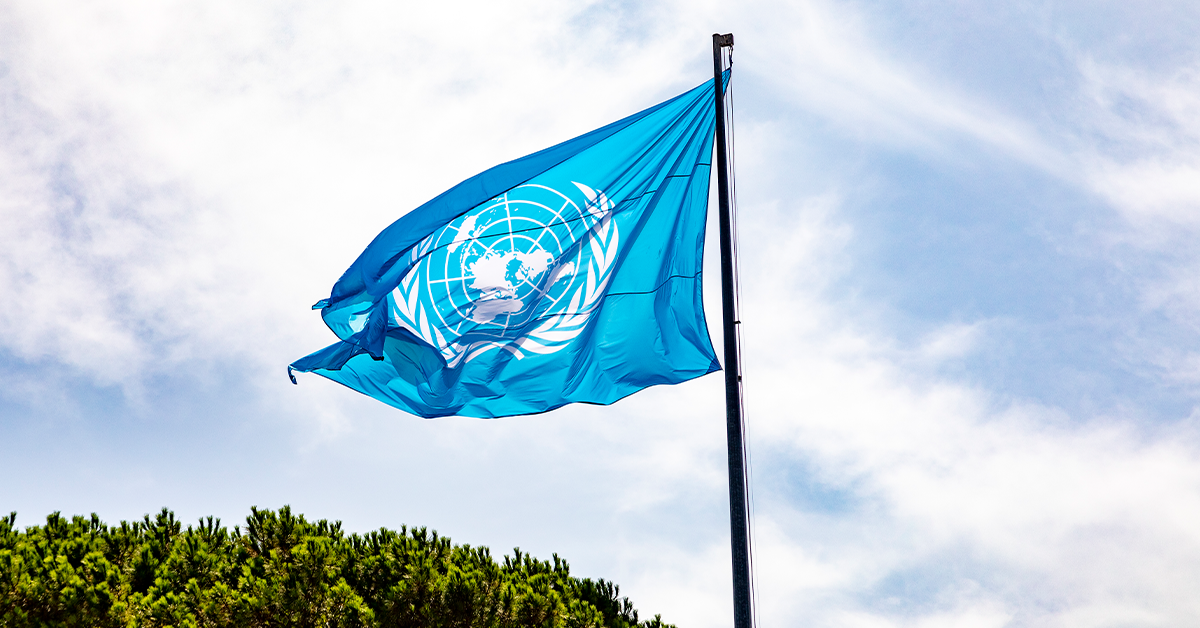
Humanists UK has raised its concerns about the treatment of non-religious asylum seekers at the 55th session of the UK Human Rights Council. Having been forced to flee their home due to violence and persecution, non-religious asylum seekers, including humanists, frequently faced further barriers when claiming asylum because of their non-religious beliefs.
Humanists at Risk
The position of most non-religious people around the world is perilous. As Ahmed Shaheed, the UN Special Rapporteur on Freedom of Religion or Belief from 2016-22, said:
‘In my observations, humanists, when they are attacked, are attacked far more viciously and brutally than in other cases.’
Some 13 countries have the death penalty for blasphemy or apostasy; a number more have seen people murdered for the same. At least 89 countries have blasphemy laws on the books. More generally, some 30 countries are classified by the Freedom of Thought Report as guilty of grave violations against the non-religious.
The number of non-religious people in the world is consistently underestimated and there is simply no reliable data outside of the West. The reasons for this are numerous but mostly it is because even admitting to non-religious beliefs is dangerous or socially unacceptable. In some countries – like Pakistan, Egypt, Bangladesh, Iraq, and Afghanistan – the population willing to declare they are non-religious is essentially non-existent, and in many others it is very small indeed.
Humanists UK at the UN
Humanists UK reminded the Council that the non-religious are protected by the right to freedom of religion and belief, and that when those rights are violated through violence and discrimination, it leads to some fleeing their homes to seek refuge elsewhere. Yet non-religious refugees face further barriers when trying to claim asylum.
In an intervention delivered by Humanists UK representative Lucy Potter, who is currently researching her PhD thesis on the British asylum system and non-religious asylum claimants, She said:
‘My forthcoming research shows that non-religious people face significant disadvantages seeking asylum and in receiving protection for holding non-religious beliefs. The United Kingdom’s religious persecution guidance overwhelmingly focuses on Christian convert cases, leading to asylum claimants being subjected to inaccurate questioning such as referring to atheism as a conversion and seeing atheism as analogous to adhering to a religious doctrine. This leads to an unfair burden of evidence where the non-religious must materialise their claims, in ways not compatible with atheistic beliefs.
‘These findings are being replicated around Europe where non-religious claimants are labelled as ‘converts’ in Sweden, Norway, and the Netherlands. For example, converts can point to a church or pastor who has provided support, but the non-religious often do not have the equivalent support to evidence their beliefs.’
Humanists UK also called on all UN states to close the gaps in their asylum assessment processes for – and to improve their knowledge about – the non-religious.
Faith to Faithless – a part of Humanists UK – won an award last year for its work towards closing this gap. Since 2018, Faith to Faithless has helped 96 asylum seekers fleeing persecution due to their belief, assessing the genuineness and validity of their claims, providing letters of support, and appearing at tribunals. They have also trained 200 asylum assessors in dealing with non-religious asylum claims.
Humanists UK recently launched the only UK-based dedicated helpline for so-called ‘apostates’ – people who leave high-control religions or cults.
Notes
For further comment or information, media should contact Humanists UK Director of Public Affairs and Policy Kathy Riddick at press@humanists.uk or phone 07534 248 596.
Read more about our international work.
Humanists UK is the national charity working on behalf of non-religious people. Powered by over 120,000 members and supporters, we advance free thinking and promote humanism to create a tolerant society where rational thinking and kindness prevail. We provide ceremonies, pastoral care, education, and support services benefitting over a million people every year and our campaigns advance humanist thinking on ethical issues, human rights, and equal treatment for all.
